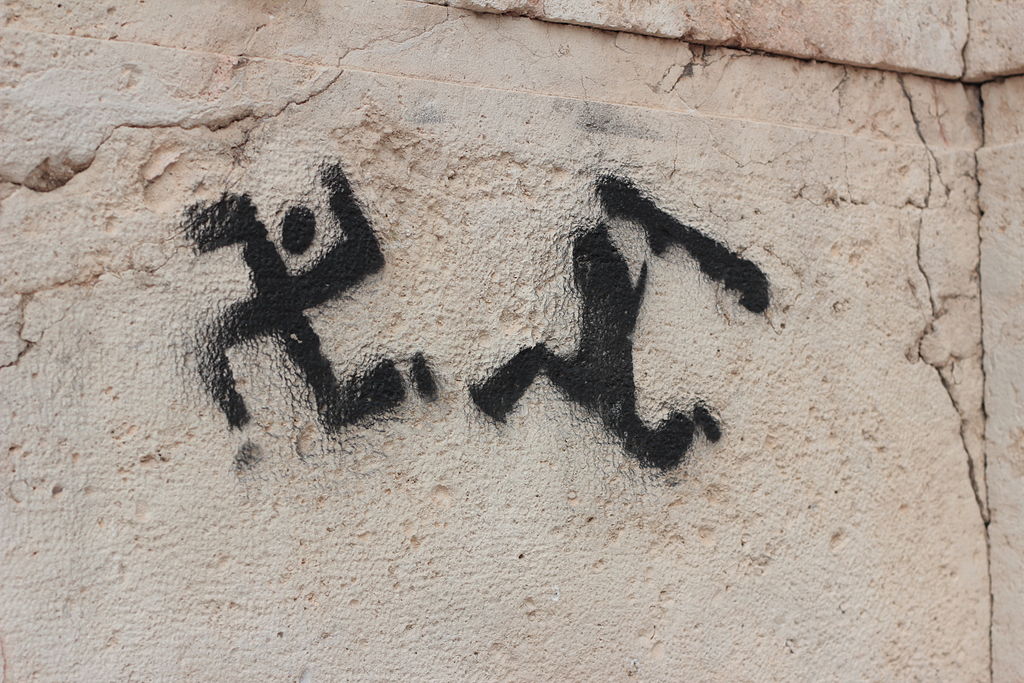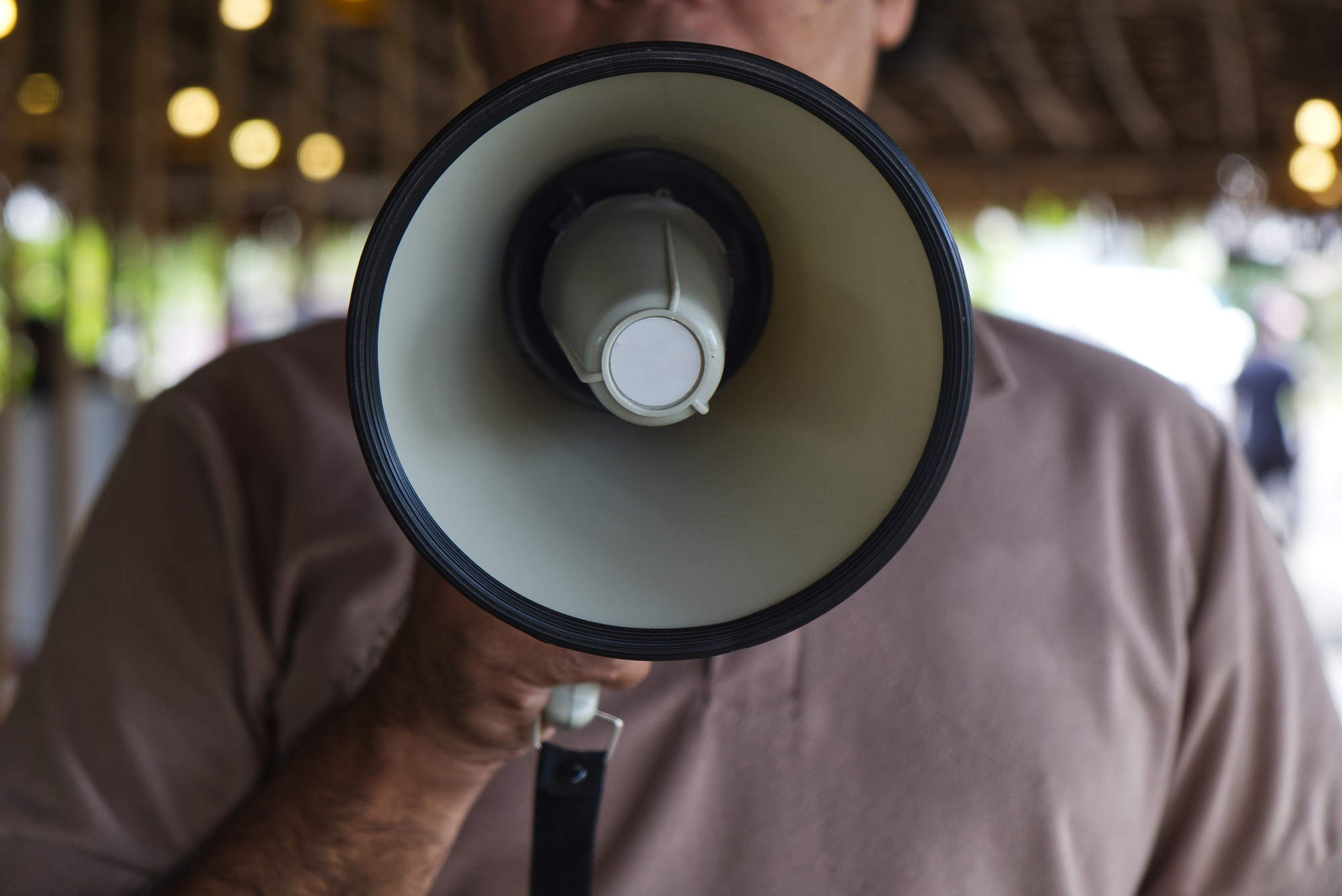The Ethics of Taking to the Streets and Punching Nazis
The days since the inauguration of President Trump have been filled with demonstrations and protest. The inauguration itself was viewed significantly less than those prior, and what may have been the largest protest in our history followed the next day. It is noteworthy that while over three million people gathered in the Women’s March nationally, it was “peaceful,” with no arrests at the main locus of the protests in Washington, D.C., or at the sister marches in Los Angeles and New York City.
The purpose of these worldwide protests has been to send a general message – of solidarity with disadvantaged groups that the Trump administration appears gearing up to further disadvantage, of the collective intent to antagonize future efforts to disempower women and these disadvantaged groups, and to resist accepting the Trump administration, their dialectic and values as normal for American society. Thus, the purpose is largely expressive and community-building. This may be a factor in how tightly organized and peaceful they succeeded in being. The cause and purpose of the marches conduce to an orderly and structured event.
But what if it were more disruptive, or more disorderly?
In the months surrounding the election, comparisons between President Trump’s successful campaign and Nazi sympathizers in pre-war Germany appeared in social media and news editorials. The role of anger and discomfort rather than building peaceful bridges in combating the rise of the hatred and bigotry in such campaigns is now more significant than ever.
This weekend, the marches served as a contrast to events in Washington, DC on Friday, the day of the inauguration itself, when a white nationalist, Richard Spencer, was punched in the face in the midst of a broadcast interview.
When someone can serve as the embodiment of a large societal problem, or when they individually hold views that are so toxic and pernicious to a respectful and decent society, typical feelings of appropriate expressions of anger and peaceful discourse are challenged. Headlines across the country are asking “Is it ok to punch a Nazi,” with a great deal of supportive responses answering in the affirmative.
Why do people seem collectively okay with this public assault?
Strategies for “standing up” to bigotry have been a topic of more and more public attention. For instance, discussions of microaggressions, the signaling of viewpoints that contain racist, sexist, ableist, transphobic, homophobic, etc., perspectives through speech or behavior, has become more and more common in recent years. The emphasis has been how to address such behaviors, “calling out” people who, perhaps without realizing it, are taking part in the propagation of the system that disadvantages so many groups in our society. Silence, politeness, and complacency in the face of these behaviors allow them to go unchallenged, and slow the progress of dismantling oppressive perspectives in our society.
Richard Spencer obviously wasn’t being called out for microaggressing. He wasn’t being brought in, educated about a vocabulary misstep or aspect of social justice he hadn’t encountered yet. He is the person who coined the term “alt-right”, distancing himself from Nazism on the basis of historical context rather than beliefs, and has managed a website that once published an essay saying, “we should instead be asking questions like, ‘Does the human civilization actually need the black race?’ ‘Is Black genocide right?’, and, if it is, ‘What would be the best and easiest way to dispose of them?’” He has explicitly espoused abhorrent and disgusting views.
When things get that bad, cool-headed discourse may be beyond the realm of reasonable responses.
During the campaign, a meme made the rounds of a picture from the first half of the 20th century: a woman dramatically beating a German soldier with her purse. Overlaying the picture, words proclaimed, “Be the woman hitting a Nazi with a handbag you wish to see in the world.” Calls for action, and not being polite, spread throughout communities that felt resistant to the messages of the Trump campaign, and now administration. The slogan, “Nice people made the best Nazis,” evoked a similar call to arms, a kind of resistance that isn’t “nice,” or polite, doesn’t build bridges but rather stands up.
Since Spencer was punched, images from popular movies of heroes punching Nazis (Captain America and Indiana Jones in particular) are spreading fast. White supremacists are not new in our country, unfortunately. However, it has not been common practice to assault KKK members when they speak publicly.
The assault on Spencer seems to be effective in some way – he has since communicated that he does not feel as safe expressing his viewpoints in public. Thus, if tackling issues of social justice, expressing solidarity with the underrepresented groups in our society and attempting to raise the level of discourse by not allowing bigotry to go unanswered was part of the goal, the punching seems a successful tactic.
While the Women’s Marches were “peaceful,” and the lack of arrests have been widely lauded, Friday’s Nazi punch keeps the question of when less peaceful tactics seem acceptable in mind. The controversies over Black Lives Matter demonstrations in 2016, including demonstrations that shut down lanes of traffic in Inglewood, California, without violence, or when demonstrations led to arrests when traffic was blocked on the Golden Gate Bridge, press on when our tolerance for disruption is breached. A white nationalist being assaulted on the street incites glee and movie memes, but demonstrations with similar messages to those of Saturday, but that caused more inconvenience, lead to controversy and questions. What was the point of the protest? Why the disruption and inconvenience? Why this strategy?
Going forward after this week of huge demonstrations and this, perhaps telling, individual act of resistance, we have questions and tasks to attend to. What strategies and tactics are appropriate in the face of an administration that undermines the rights, safety and dignity of a large portion of its citizens? What responsibility does the citizenry hold for protecting speech, expression and safety of those they disagree with when these individuals and groups are posing a threat to their rights? In the next four years, we are going to have to critically reflect on our tools and tactics for standing with one ideology and making this stand have real effects on our country. This likely won’t mean being peaceful, complacent and convenient all the time. Therefore, we should question the ways in which we should disrupt and question when we have strong positive, or negative, reactions to civil disruptions.





